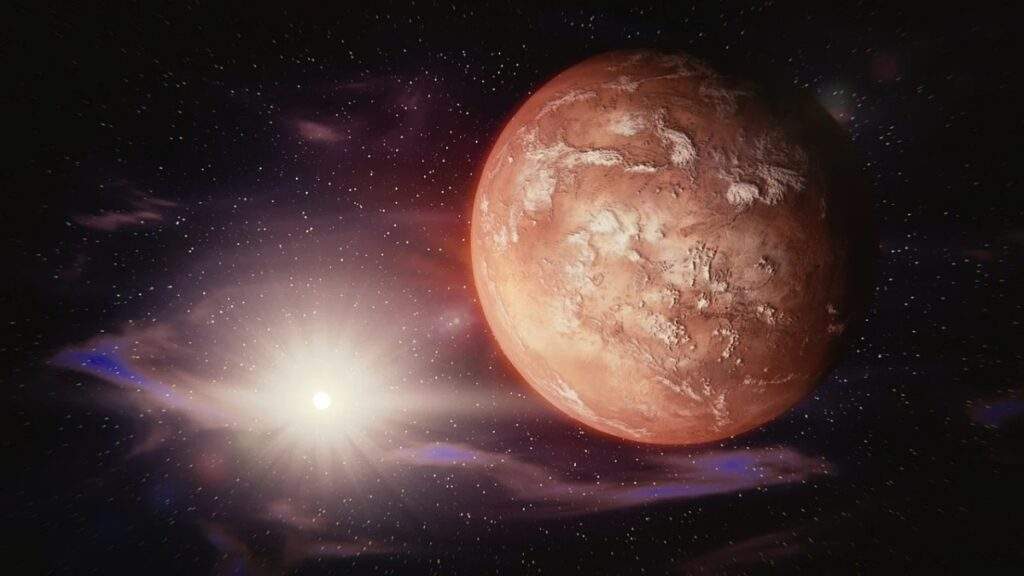Mars’ Orbit Wobble Linked to Primordial Black Holes, Researchers Suggest
A team of MIT physicists has proposed a groundbreaking theory that the wobble in Mars’ orbit could be caused by primordial black holes, which may constitute dark matter. These tiny black holes, formed after the Big Bang, could be passing through our solar system, affecting the orbit of planets like Mars.
According to the research, published in the journal Physical Review D, these primordial black holes are different from those formed from collapsed stars. They are microscopic in size, but may exert enough gravitational force to impact planetary orbits. The team, led by Professor David Kaiser, used simulations to predict that these black holes pass through the solar system every decade or so.
One of the key findings is that even a black hole the size of an asteroid could influence Mars’ orbit. The team’s calculations show that a passing primordial black hole would cause Mars to deviate slightly from its regular orbit. This slight shift could be detected using the precise telemetry data available for Mars.
Sarah Geller, a postdoctoral researcher at the University of California, Santa Cruz, notes that while Earth and the Moon might also be affected, the data for Mars is clearer, making it easier to detect any potential anomalies. If such a wobble is detected, it could confirm the presence of primordial black holes and offer new insights into dark matter.
The research highlights the need for precise observations and collaboration with experts in solar system dynamics to explore this phenomenon further. The detection of a wobble in Mars’ orbit could be a significant breakthrough in understanding dark matter, a mysterious component that makes up approximately 27% of the universe.
The team’s findings suggest that the technology we have today could detect this slight shift in Mars’ orbit, providing a new avenue for researchers to study dark matter. As the search for dark matter continues, this theory offers a promising lead in the quest to understand the nature of this enigmatic substance.
